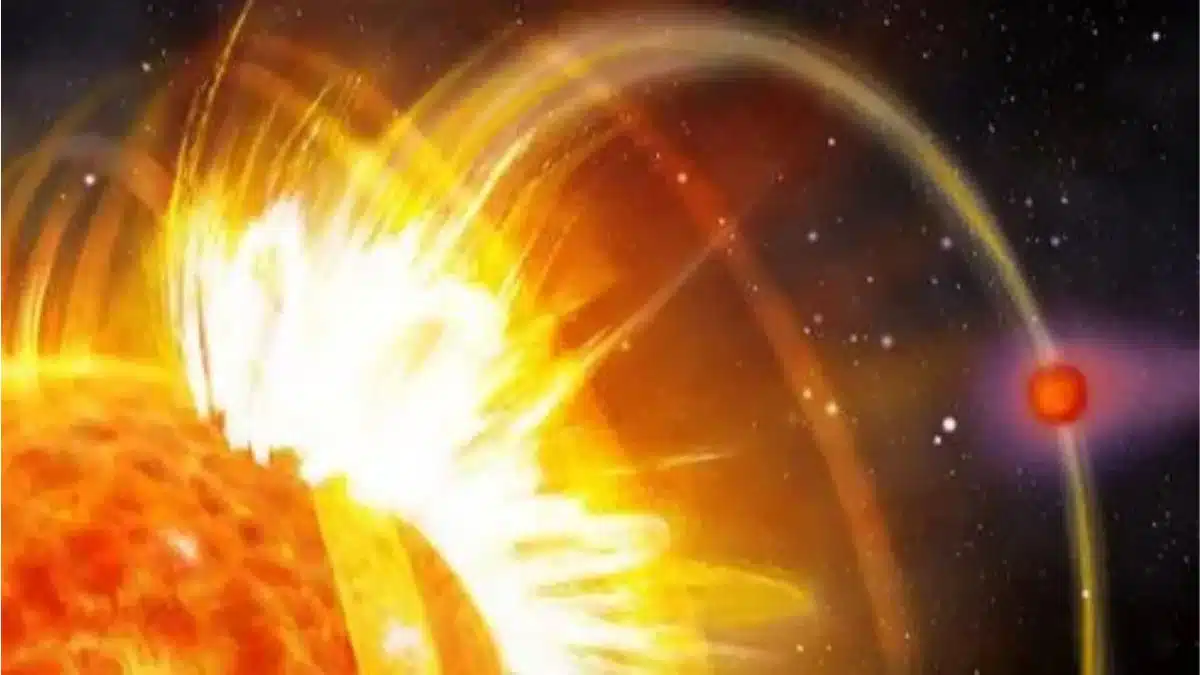A Planet with a Death Wish: How HIP 67522 b Is Forcing Its

Scientists have made a groundbreaking discovery of a planet that appears to be influencing its host star in a dramatic way. Named HIP 67522 b, this Jupiter-sized exoplanet orbits its star in just seven days, creating disturbances in the star’s magnetic field. These disturbances are leading to explosive eruptions that could ultimately contribute to the star’s demise. This unprecedented interaction between a planet and its star was detailed in a study published on July 2, 2025, in the journal Nature.
A Planet with a Death Wish: HIP 67522 b’s Fiery Orbit
According to a study conducted by NASA, HIP 67522 b is not just another exoplanet; it is a celestial body that seems to be on a collision course with its own star. Ekaterina Ilin, the lead author of the study and an astrophysicist at the Netherlands Institute for Radio Astronomy, noted that the planet’s rapid orbit is triggering energetic flares from the star. Scientists believe that the gravitational and magnetic interactions between the planet and its star are setting off a series of explosions. This phenomenon marks a significant milestone in astrophysics, as it is the first documented case of a planet actively influencing the behavior of its host star.
Magnetic Chaos: Planet Triggering Star’s Explosions
Stars are massive spheres of burning plasma, composed of charged particles that generate strong magnetic fields. These magnetic fields can become unstable, leading to sudden releases of energy known as solar flares, often accompanied by coronal mass ejections. For years, scientists have speculated about the potential for planets, particularly those in close orbits, to disturb these magnetic fields and trigger such explosive events. The observations of HIP 67522 b provide compelling evidence that planets can indeed have a significant impact on their stars, reshaping our understanding of stellar dynamics and planetary interactions.
A New Era of Star-Planet Relationship Studies
The discovery of HIP 67522 b opens up new avenues for research into the relationship between stars and their orbiting planets. When a planet with a strong magnetic field orbits a star with a weaker magnetic field, it can experience intense solar radiation. These interactions not only enhance our understanding of the bond between stars and planets but also contribute to the study of atmospheric evolution and magnetic field dynamics. As researchers continue to explore these complex relationships, the findings from HIP 67522 b could pave the way for future investigations into the myriad ways celestial bodies influence one another in the cosmos.
Observer Voice is the one stop site for National, International news, Sports, Editor’s Choice, Art/culture contents, Quotes and much more. We also cover historical contents. Historical contents includes World History, Indian History, and what happened today. The website also covers Entertainment across the India and World.

